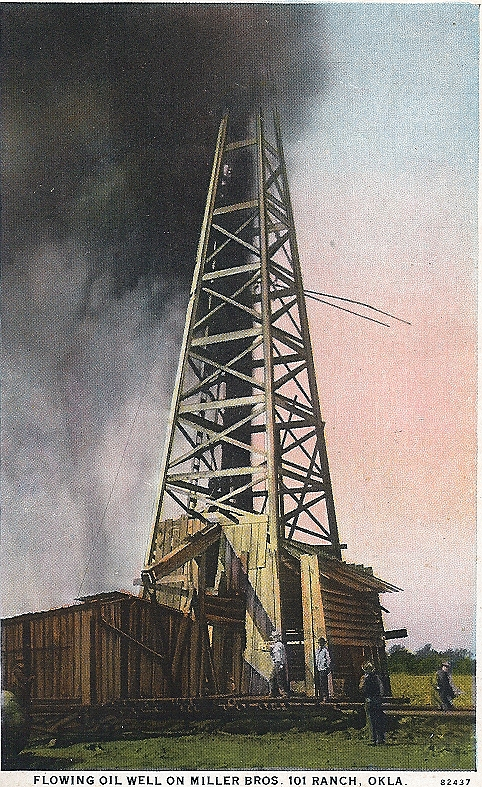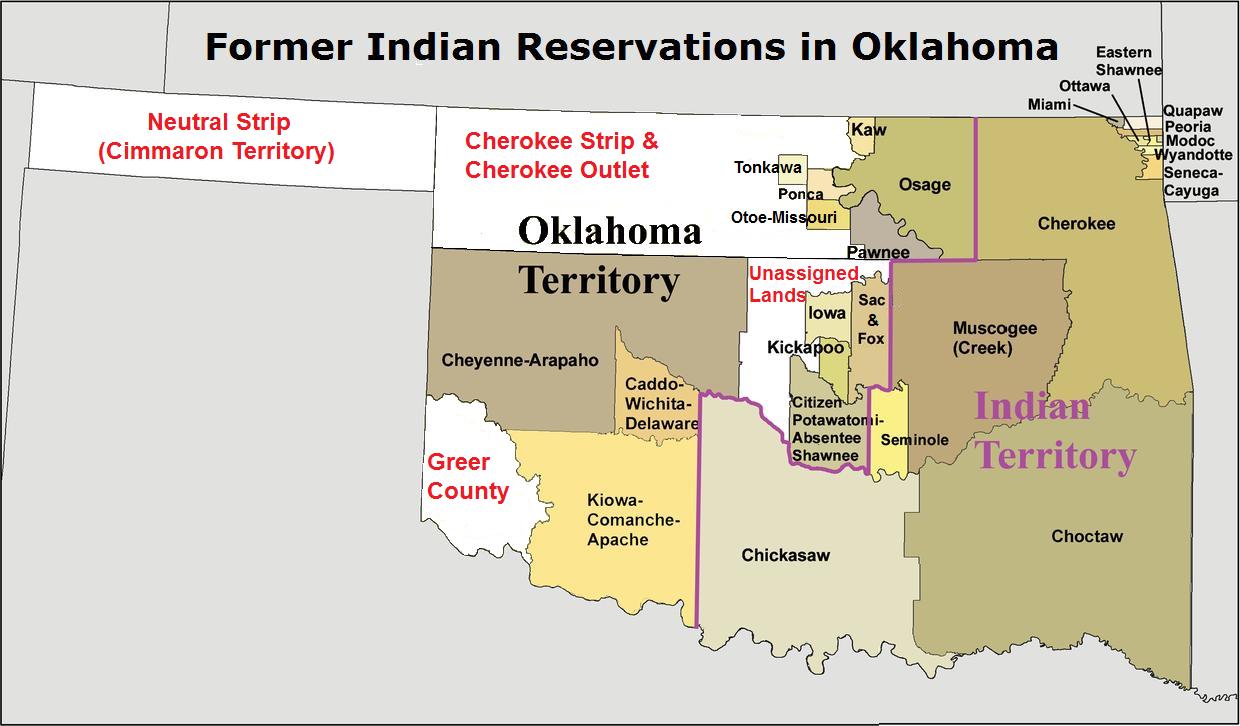|
Cowboy Hill
Cowboy Hill is an Oklahoma Historic Site located on a bluff overlooking the Salt Fork of the Arkansas river in Kay County, Oklahoma. Zack Miller, owner of the famed 101 Ranch, gave the land to the ''Cherokee Strip Cowpunchers Association'' in 1930 for use as long as they needed it. In 1959, Zack Miller deeded Cowboy Hill to the Oklahoma Historical Society. Zack Miller and Jack Webb, one of the famous trick-shooters with the 101 Ranch Wild West Show, are buried in the Cowboy Hill Cemetery located on the site. The Cherokee Strip Cowpunchers Association, organized in 1920, was open to those who had worked as cowboys on the ranches in the Cherokee Strip The Cherokee Outlet, or Cherokee Strip, was located in what is now the state of Oklahoma in the United States. It was a 60-mile-wide (97 km) parcel of land south of the Oklahoma-Kansas border between 96 and 100°W. The Cherokee Outlet wa ... before 1893, the year the Strip was open for settlement. The association numbered ... [...More Info...] [...Related Items...] OR: [Wikipedia] [Google] [Baidu] |
Kay County, Oklahoma
Kay County is a county located in the U.S. state of Oklahoma. As of the 2020 census, its population was 43,700. Its county seat is Newkirk, and the largest city is Ponca City. Kay County comprises the Ponca City micropolitan statistical area. It is in north-central Oklahoma on the Kansas state line. Before statehood, Kay County was formed from the "Cherokee Strip" or "Cherokee Outlet" and originally designated as county "K". Its name means simply that. Kay County is the only county to keep its same name as the Oklahoma area moved from a territory to a state. History The remains of two large 18th-century villages, the Deer Creek/Bryson Paddock Sites, of Wichita Native Americans have been found overlooking the Arkansas River in Kay County. The Osage used Kay County for hunting in the late 18th and early 19th centuries. In 1825, the Osage ceded to the U.S. government their rights to a large expanse of land, including Kay County, and the government gave the Cherokee ownership ... [...More Info...] [...Related Items...] OR: [Wikipedia] [Google] [Baidu] |
Miller Brothers 101 Ranch
The Miller Brothers 101 Ranch was a cattle ranch in the Indian Territory of Oklahoma before statehood. Located near modern-day Ponca City, it was founded by Colonel George Washington Miller, a veteran of the Confederate Army, in 1893.Hoy, JimCattle Industry" Encyclopedia of Oklahoma History and Culture' (accessed March 5, 2015). The 101 Ranch was the birthplace of the 101 Ranch Wild West Show and one of the early focal points of the oil rush in northeastern Oklahoma. It was the largest diversified farm and ranch in America at the time. Bill Pickett's grave and the White Eagle Monument are located on the ranch grounds. The location of the former working cattle ranch was subdivided and all of its buildings destroyed. An area of the ranch is a National Historic Landmark. In 2003, the ranch was inducted into the Texas Trail of Fame. In 1903, when Colonel George Miller died, his three sons, Joseph, George Jr., and Zack took over operation of the 110,000 acre ranch. By 1932 most of ... [...More Info...] [...Related Items...] OR: [Wikipedia] [Google] [Baidu] |
Oklahoma Historical Society
The Oklahoma Historical Society (OHS) is an agency of the government of Oklahoma dedicated to promotion and preservation of Oklahoma's history and its people by collecting, interpreting, and disseminating knowledge and artifacts of Oklahoma. The mission of the OHS is to collect, preserve, and share the history and culture of the state of Oklahoma and its people. The society has the rare distinction of being both a Smithsonian Institution and National Archives and Records Administration affiliate. History The OHS was formed in May 1893, 14 years before Oklahoma became a state, by the Oklahoma Territorial Press Association. The initial function of the OHS was to collect and distribute newspapers published in Oklahoma Territory. The society was declared an agency of the territorial government in 1895, and it became an official state government agency when Oklahoma reached statehood in 1907. The OHS is both a private, membership organization and an Oklahoma government agency. Th ... [...More Info...] [...Related Items...] OR: [Wikipedia] [Google] [Baidu] |
101 Ranch Wild West Show
The Miller Brothers 101 Ranch was a cattle ranch in the Indian Territory of Oklahoma before statehood. Located near modern-day Ponca City, it was founded by Colonel George Washington Miller, a veteran of the Confederate Army, in 1893.Hoy, JimCattle Industry" Encyclopedia of Oklahoma History and Culture' (accessed March 5, 2015). The 101 Ranch was the birthplace of the 101 Ranch Wild West Show and one of the early focal points of the oil rush in northeastern Oklahoma. It was the largest diversified farm and ranch in America at the time. Bill Pickett's grave and the White Eagle Monument are located on the ranch grounds. The location of the former working cattle ranch was subdivided and all of its buildings destroyed. An area of the ranch is a National Historic Landmark. In 2003, the ranch was inducted into the Texas Trail of Fame. In 1903, when Colonel George Miller died, his three sons, Joseph, George Jr., and Zack took over operation of the 110,000 acre ranch. By 1932 most of ... [...More Info...] [...Related Items...] OR: [Wikipedia] [Google] [Baidu] |
Cherokee Outlet
The Cherokee Outlet, or Cherokee Strip, was located in what is now the state of Oklahoma in the United States. It was a 60-mile-wide (97 km) parcel of land south of the Oklahoma-Kansas border between 96 and 100°W. The Cherokee Outlet was created in 1836. The United States forced the Cherokee Nation of Indians to cede to the United States all lands east of the Mississippi River in exchange for a reservation and an "outlet" in Indian Territory (later Oklahoma). At the time of its creation, the Cherokee Outlet was about 225 miles (360 km) long. The cities of Enid, Woodward, Ponca City, and Perry were later founded within the boundaries of what had been the Cherokee Outlet. The Cherokee Strip was a two and one-half mile wide piece of land running along the northern border of much of the Cherokee Outlet. It was the result of a surveying error. The whole of the Cherokee Outlet is often called the Cherokee Strip. Creation In 1836, the Treaty of New Echota between t ... [...More Info...] [...Related Items...] OR: [Wikipedia] [Google] [Baidu] |
Hills Of Oklahoma
''Hills of Oklahoma'' is a 1950 American Western film directed by R. G. Springsteen and written by Olive Cooper and Victor Arthur. The film stars Rex Allen, Elisabeth Fraser, Elisabeth Risdon, Robert Karnes, Fuzzy Knight and Roscoe Ates. The film was released on June 1, 1950, by Republic Pictures. Plot Cast *Rex Allen as Rex Allen *Koko as Rex Allen's Horse *Elisabeth Fraser as Sharon Forbes *Elisabeth Risdon as Kate Carney *Robert Karnes as Brock Stevens *Fuzzy Knight as Jiggs Endicott *Roscoe Ates as Dismal *Robert Emmett Keane as Charles Stevens *Trevor Bardette as Hank Peters *Lee Phelps as Rancher Scotty Davis *Edmund Cobb as Rancher Johnson *Rex Lease as Joe Brant * Ted Adams as Henchman Sam *Lane Bradford as Henchman Webb *Michael Carr as Tommy *Johnny Downs John Morey Downs (October 10, 1913 – June 6, 1994) was an American child actor, singer, and dancer. He began his career as a child actor, most notably playing Johnny in the ''Our Gang'' short series fro ... [...More Info...] [...Related Items...] OR: [Wikipedia] [Google] [Baidu] |
Historic Sites In Oklahoma
History (derived ) is the systematic study and the documentation of the human activity. The time period of event before the invention of writing systems is considered prehistory. "History" is an umbrella term comprising past events as well as the memory, discovery, collection, organization, presentation, and interpretation of these events. Historians seek knowledge of the past using historical sources such as written documents, oral accounts, art and material artifacts, and ecological markers. History is not complete and still has debatable mysteries. History is also an academic discipline which uses narrative to describe, examine, question, and analyze past events, and investigate their patterns of cause and effect. Historians often debate which narrative best explains an event, as well as the significance of different causes and effects. Historians also debate the nature of history as an end in itself, as well as its usefulness to give perspective on the problems of the p ... [...More Info...] [...Related Items...] OR: [Wikipedia] [Google] [Baidu] |



.jpg)